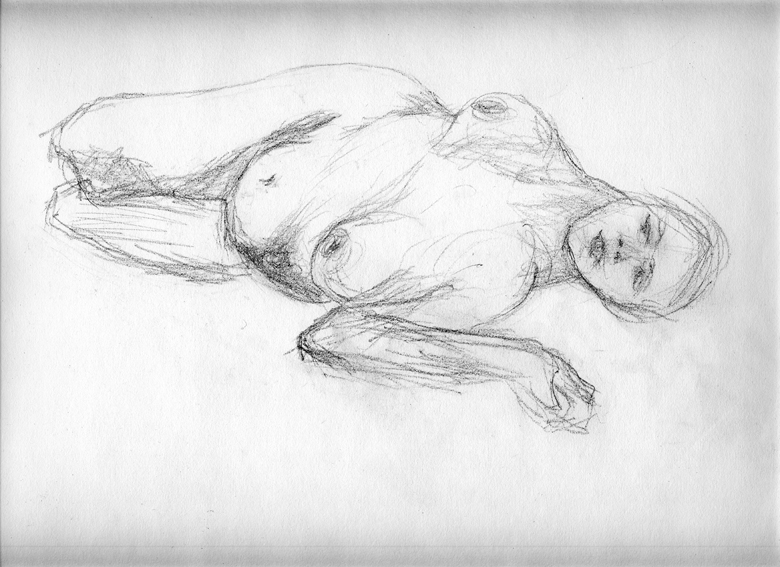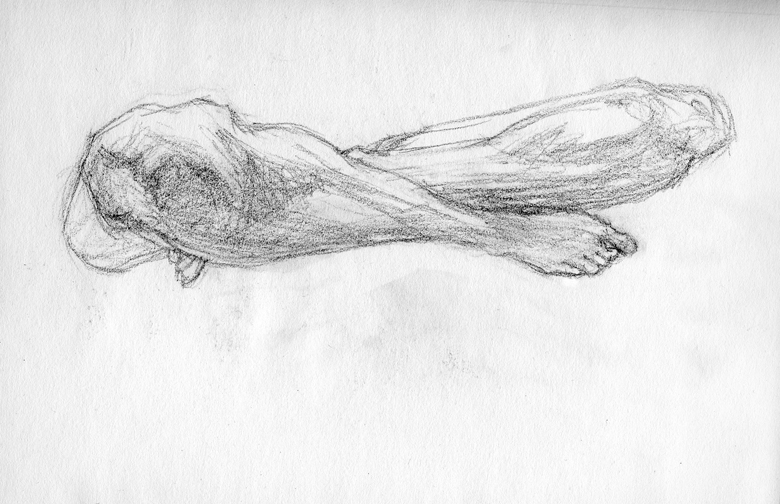CV
Every day one can see, on the subway, in the street, and bussing tables in the restaurants and cafés, perfect Aztecs.
Alternate-side-of-the-street chickens
Workers cleaning the reflecting pools at the 9/11 memorial downtown over the weekend caused such a stink that hazmat trucks rushed to the site – and it was temporarily shut down.
“People were coughing, I had difficulty breathing,” said a cop outside the national Sept. 11 Memorial and Museum on Sunday, a day after the twin pools were treated with what officials described as nontoxic chemicals to kill algae…
“The Fire Department came and shut everything down, tested everything, then gave the OK to let everyone back in,” a janitor there said.
The janitor claimed that workers “put too much chemicals in the water.”
But a museum rep said, “The odor was believed to be decomposing algae.”
From “Smelly scare at 9/11 site,” New York Post, May 18, 2015.
On the third floor of A-block, General O’Hara, ready to give the crucial signal, was discovering that his two-way radio would not work… He finally borrowed a working radio from a trooper and ordered the helicopter gas drop that would set off the general attack.
At 9:48:18 the sweep second hand of the big electric clock on the wall of the Stewards’ Room stopped moving. Most of the observers noticed that at once, as if the clock had made a loud noise. The prison power circuit had been turned off.
“That’s it,” Alfredo Matthew said.
Then they heard the helicopter rise from the parking lot and pass overhead, toward D-yard.
Many of the inmates in the yard had worked themselves into something of a frenzy in anticipation of what some of their leaders were calling “war.” There was much shouting and milling about. But suddenly the commotion in the yard “just died out.” An inmate turned around and saw troopers standing up on the roofs of A- and C-blocks, “each one carrying a rifle with a telescope. I started walking back toward my people and then saw a helicopter go up and begin to circle…”
It was 9:46 A.M. In his “command post,” Russell Oswald heard a voice crackle on the police radio, “Jackpot One has made the drop.” Captain Henry Williams’s voice followed immediately, “Move in. Move in.” [ATTD, pp. 277-278]
Even though a cloud’s white curtain in a far-off corner flashed
An’ the hypnotic splattered mist was slowly lifting
Electric light still struck like arrows, fired but for the ones
Condemned to drift or else be kept from drifting
Tolling for the searching ones, on their speechless, seeking trail
For the lonesome-hearted lovers with too personal a tale
And for each unharmful, gentle soul misplaced inside a jail
And we gazed upon the chimes of freedom flashing
Starry-eyed and laughing as I recall when we were caught
Trapped by no track of hours for they hanged suspended
As we listened one last time an’ we watched with one last look
Spellbound and swallowed ’til the tolling ended
Tolling for the aching ones whose wounds cannot be nursed
For the countless confused, accused, misused, strung-out ones and worse
And for every hung-up person in the whole wide universe
And we gazed upon the chimes of freedom flashing
[Dylan]
The Attica rebels – who as individuals knew, and had sometimes perpetrated, brutality, violence, even murder – did not reckon with, nor could they comprehend, the true depths of the state’s inherent inhumanity. The state could sacrifice “their own,” simply because neither the guards, nor even Rockefeller, were “their own.” For no person, of whatever color or degree of privilege, has standing in relation to the sacred guardianship of Property, as enshrined by and embodied in the state itself.
The idea of the state, particularly the “democratic” state, is premised on the notion that it is restrained in, and accountable for, its use of force – especially when that force is directed internally. But its presumed restraint and accountability is at odds with its monopoly on the use of force, and it operates by declaring itself, no matter how elaborate in its articulation of rights, or “transparent” its legal system may be, ultimately exempt from the laws it applies to its subjects. The state, in short, is a state of exception to its own juridical principles.
Just as Henry Ireton observed that “liberty cannot be provided for in the general sense if property be preserved,” the sovereignty of the individual cannot be realized under the authority of the state’s monopoly of force. And this is especially true when the state’s force is deployed toward the protection of ideas, existing above and beyond the individual, ideas such as religion, patriotism or Property.
A stare of a thousand yards begins with a single glance
Qilin spits out the book
In the final, er, “ultimate” episode of Mad Men, Don Draper, fresh from a yoga retreat in California, is visited by a moment of enlightenment: he’d like to buy the world a Coke. Another version of the legend has it that Bill Backer, who in 1971 was creative director of the Coke account for McCann Erickson, was stuck in Shannon airport, socked in by a fog. He recalls that “everyone was in a bad mood at first… but they came together in the airport café, and nearly all of them were drinking bottles of Coke. People of all races and color started laughing and joking over their Cokes, and it made me realize how Coke served a social purpose, making them bond.” [“He’s the real thing,” New York Post, May 19, 2015, p. 47]
What part, one wonders, did Coke play in the solidarity of D-yard? That sea of fifteen hundred upraised clenched right fists – what were they holding in their “hidden” hands? And Colonel “Bat” Guano, how does he figure into all this?
Innately and naturally, we live in reality – in the “moment.” It takes much more energy to live outside it, either in anticipation, or in the past.
Goin’ fishin’ is not the same as Gowanus fishin’
Tho’ a bid for more can be morbid
Prep school. Perp school. What a difference an inversion makes.
An incredible wake of multi-colored balloons signifies his fall
Wold school
Hypersexual?
Become an orgone donor today!
White flight
Brown town
Keep them values
Turning round
I’m the new old guy
The poetman always rhymes thrice
In the final pages of his book on the Attica prison rebellion, Tom Wicker, a southern, though not good-ol’ boy, and more Roundhead than Cavalier, is able to write that the “violent imposition of ‘law and order’ did not end the threat to society inherent in its unjust and exploitative nature.” The soi-dissant liberal has uttered, without in so many words confessing his own transformation, that the unjust and exploitative nature of American society itself constitutes a threat, both to its privileged classes and its chosen oppressed. By dint of great struggle, initiated from without, he has made an extraordinary internal change. One could say he had a spiritual sea-change at the political level.
I guess you’ll say:
What can make me feel that way?
Bruegel
I wuz a bromeliad 4 the FBI ; )
As though by some hidden drive toward visibility – comes a vapor from the margins – the pages of the Daily News you are skimming fall open to an article on NYS Attorney General Eric Schneiderman’s efforts to unseal the four hundred-odd pages of grand jury testimony and other material not published with the official report on the Attica rebellion in 1975. “46 pages were made public on Wednesday – two years after [the AG] went to court to force their disclosure. Among the shocking details…”
Well, what shocks one sensibility hardly surprises another. Yet behind and beneath the quite literally gory details, the unwritten page gets darker still. Much controversy has attended the violence directed against the prisoners, both in the initial fusillades and in numerous acts of brutality thereafter. Indeed, twenty-six of approximately 1300 D-yard brothers were fatally shot in the retaking of the prison and another three died subsequently of gunshot wounds incurred at the time. And the targeting of the presumed revolt leaders for assassination by snipers remains an open question. But it seems to me that the only way to explain how state police marksman and corrections officer gunfire almost immediately killed nine of the thirty-eight hostages (a tenth hostage died of gunshot wounds soon afterward), is that one of the intentions behind the tactics used in the assault was to deliberately target them – for reasons one can only surmise.
The Monroe County medical examiner who conducted the autopsies of the dead prisoners and hostages reported that the latter had all been killed by bullets or buckshot, “some hit as many as five, ten, twelve times.”
And though, as Wicker notes, “the authorities knew the attack would be made with buckshot, rifled slugs and .270 soft-lead bullets… [and] had the foresight to order additional leg irons for the recaptured inmates… they made no preparations for medical care for anyone, including their own.” One of the doctors brought in from Buffalo in the aftermath observed that “there wasn’t a pint of blood anywhere.”
Toward the end of A Time to Die, Wicker writes that the failure of negotiations and savagery of the assault lay in the idea that “the power of the state had not believed it possible that the men of D-yard could behave with decency and humanity.” My sense of this is that here again, as he often does, Wicker inverts the looking glass. When, indeed, the more obvious question is: how could the State, much less the state governed by Nelson Rockefeller – political operative of one of the great arch criminal families of all time – possess the capacity, much less the desire, to behave with decency and humanity toward anyone? When had it done so in the past – unless forced to by popular will?
Requiem in spades
A crow, cawing repeatedly and vociferously, perches on the roof ledge of your building, one floor up. Is it guarding a nest, or otherwise claiming territory? If you loosen your ears, its rapid utterances, “Awk! Awk! Awk!” sound very much like “Hawk! Hawk! Hawk!” And yes, there are redtails about. More than once, you’ve seen a murder of crows drive a young one away.
Riflemen on A-block… killed three hostages and at least three inmates. The third inmate killed was Elliot “L.D.” Barkley, aged 21, convicted once of a minor check forgery, paroled, returned to Attica for driving without a license. Barkley was hit in the back in the first minute of the attack by a tumbling .270 slug… and died quickly, not far from the spot where he had proclaimed to the world “the sound before the fury of those who are oppressed.” [ATTD, p. 282]
By lay of the land
Shove and tell
The times they are a changeling
Comes a vapour from the margin, blackening over heath and holt,
Cramming all the blast before it, in its breast a thunderbolt.
Let it fall on Locksley Hall, with rain or hail, or fire or snow;
For the mighty wind arises, roaring seaward, and I go.
Anyone for Tennyson?



